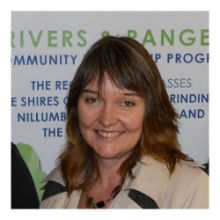Making it work

Participation rates of people with disability in the workforce in Australia are well below those of other comparable countries. And of those people with disability who are participating in the Australian workforce, a higher percentage is unemployed than people without disability who participate in the workforce.
Time and again reports tell us that people with disability are very strongly saying that they want to work, but that the opportunities for them to obtain meaningful employment that meets their employment goals and aspirations are limited.
Often people report that they can only find volunteer work, or menial roles that don’t make the most of their abilities or provide them with the self esteem-building opportunities and other positive experiences that a job that is more valued by our broader society provides.
Low levels of income are commonplace for people with disability who do find work, which only contributes more to keeping people trapped in a cycle of poverty and reduced opportunity.
Breaking down the barriers
So what can we do to address these issues and make our workplaces more inclusive of people with disability?
We need to increase people’s educational opportunities in the first place, so that they have a better chance of developing a good foundation of skills, knowledge and expertise, from which to embark along the path of job seeking and a building a career.
We need to encourage and support educators to explore more deeply with every individual what it is that makes their heart sing, and to then find creative ways of incorporating this into their career planning. It’s no secret that people are more likely to succeed when they are doing something that really resonates with them.
We also need to focus on increasing people’s expectations of them and the expectations others have of their capacity for employment. As the old saying goes: “If you think you can do a thing or think you can’t do a thing, you’re right”.
If individuals, families and the media showcase the achievements of people with disability who are realising their goals in the workforce, it will inspired more people with disability to pursue their own dreams. And by increasing opportunities for peer support and networking, people will also find out more about what others are doing in the employment space.
Employers need to have a greater focus on reducing barriers and making workplaces more accessible to workers with disability. Australian workplaces need employment policies that actively encourage people with disability to apply for job opportunities, and these need to be backed up by a commitment to creating an environment that support a person’s needs once they start works. This need to be more than just changes to the physical environment. Employers also need to foster a workplace culture that embraces and celebrates diversity.
For some people, self-employment may be the way of achieving the job outcomes they seek. Creating a business (small or otherwise) that can capitalise on your specific strengths and passions can be a great way of establishing a niche market for your services. For individuals who can successfully embark on such a venture, either on their own or with the support of others, it can bring so much more to life than just financial returns.
How the NDIS can help
The Productivity Commission’s Inquiry into Disability Care and Support noted many issues relating to the reduced employment opportunities faced by people with disability (and also for their family members and carers) and the detrimental impacts these can have on a person’s life.
The Recommendations of Inquiry’s report are rightly underpinned by a strong focus on providing people with disability the support they need to participate more fully in the workforce because the benefits to the individual, their family, the broader community, and the country’s economy are significant.
The NDIS needs to deliver on the intent of these recommendations to increase the participation rates of people with disability in the workforce in Australia, so that all our citizens can enjoy the benefits – financial and otherwise – that come from being gainfully employed in a job that you enjoy.


Join the conversation